Constipation in kittens refers to infrequent, difficult, or absent bowel movements. While occasional irregularity might not be concerning, prolonged constipation can negatively impact your kitten’s health and well-being. It’s essential to be aware of the causes, signs, and remedies to ensure your kitten’s comfort and prevent complications.
- Constipation in kittens can be caused by dehydration, diet, and medical conditions.
- Symptoms of constipation include straining in the litter box and hard, dry stools.
- Veterinarians may recommend stool softeners, dietary changes, or even surgery for severe cases.
Here’s an overview of what we’ll cover in this article:
- Causes of Kitten Constipation: Factors that contribute to digestive difficulties.
- Identifying the Signs: Symptoms to watch for in your kitten.
- Safe Home Remedies: Actions you can take to provide relief.
- Veterinary Intervention: When to seek professional help.
- Prevention Strategies: Measures to promote healthy digestion in your kitten.
Let’s delve into the details and help keep your kitten’s digestive system on track.
The information provided herein is for informational purposes only. Please refer to our disclaimer for more details..
Causes of Kitten Constipation
Constipation in kittens can be caused by a surprising variety of factors. Understanding the root of the problem is the first step toward helping your furry friend find relief. Here’s a breakdown of the most common causes of constipation:
The Importance of Maternal Stimulation
Very young kittens haven’t yet developed the reflexes to pass feces on their own. They rely on their mother’s licking to stimulate their bowels and bladder. If you’re caring for an orphaned kitten, you’ll need to gently mimic this action with a warm, damp cloth after feeding.
Dehydration
Water is crucial for proper digestion. Without enough fluids, your kitten’s stools become hard, dry, and difficult to pass. A diet of primarily dry food, limited water intake, or a dislike for still water can all contribute to constipation.
Dietary Factors
- Lack of Fiber: Fiber adds bulk to stools and helps regulate the bowels. A diet lacking in fiber can lead to constipation.
- Low-quality Food: Foods containing fillers and difficult-to-digest ingredients can disrupt your kitten’s digestive system.
- Sudden Changes in Diet: Abruptly changing a kitten’s food throws their digestion off balance. Kitten can easily become constipated. New foods should be introduced gradually.
Medical Conditions
- Intestinal Parasites: Heavy worm infestations can irritate the lining of the intestines and even create blockages. This can also cause constipation in cats.
- Megacolon: This condition causes the colon to enlarge abnormally, hindering its ability to push out waste effectively.
- Neurological Disorders: Though less common in kittens, neurological conditions can sometimes interfere with the nerves controlling elimination.
- Obstructions: From hairballs to accidentally ingested foreign objects (like string, toys, etc.), physical blockages can prevent stool from passing normally. This can become a medical emergency.
Behavioral Factors
Stress: Major changes, vet visits, or a stressful environment can impact your kitten’s digestion, sometimes leading to constipation.
Other Causes
Medication Side Effects: Certain medications may list constipation as a potential side effect.
Age: While constipation can happen at any age, older kittens and senior cats are generally more susceptible.
Physical Inactivity & Excessive Weight: Lack of exercise slows down the digestive system. Additionally, obesity puts extra strain on the body and increases the risk of constipation.
In many cases, there isn’t one single cause of constipation. Multiple factors might be contributing to your little one’s discomfort.
Signs and Symptoms of Kitten Constipation
Kittens can’t always tell us when something’s wrong, so paying attention to their behavior and litter box habits is key. Here are the most common signs that your kitten may be constipated:
Straining in the Litter Box: If your kitten spends a lot of time in the litter box with little or no result, or seems to be pushing excessively, constipation is likely. You might even hear them vocalizing due to discomfort.
Small, Hard, Dry Stools: Constipated kittens might produce small, pebble-like stools that are difficult to pass. Sometimes, you may see streaks of blood or mucus on the stool as well.
Infrequent Bowel Movements: A healthy kitten should usually defecate at least once a day. If your kitten hasn’t had a bowel movement in 24-48 hours, monitor them closely for other signs of constipation.
Abdominal Discomfort or Bloating: A backed-up digestive system can cause your kitten’s tummy to feel hard or bloated. They might seem uncomfortable or restless.
Vomiting: In severe cases of constipation, your kitten might vomit as a result of the blockage.
Lethargy and Decreased Appetite: Constipation can make your kitten feel unwell, leading to a loss of energy or a disinterest in food.
If you notice any of these signs, especially if they persist or worsen, it’s time to consult your veterinarian. Prompt action can help prevent complications and get your kitten back to feeling their best!
When to See a Veterinarian
While some mild cases of kitten constipation can resolve with home remedies, there are times when a trip to the vet is absolutely essential. Don’t hesitate to seek professional help if you notice any of the following warning signs:
No Bowel Movements for 24-48 Hours: This prolonged lack of elimination suggests a more serious issue than simple constipation.
Vomiting or Refusal to Eat: These can indicate a blockage or an underlying condition that needs immediate attention.
Blood in the Stool: This could be a sign of intestinal damage or other health problems.
Extreme Lethargy or Weakness: When constipation makes your kitten profoundly unwell, it’s time for a vet checkup.
How Vet Diagnose Kitten Constipation
Physical Examination: Your vet will start by assessing your kitten’s overall health and feeling their abdomen for any blockages or tenderness.
X-rays or Other Imaging: These tools help visualize the internal situation, detect blockages, and check for conditions like megacolon.
Ruling Out Underlying Medical Conditions: Your vet may perform tests to identify or exclude potential causes for the constipation, such as parasites or neurological issues.
Treatment Options
Depending on the diagnosis, your veterinarian may recommend treatment for constipation:
- Medications: Stool softeners, laxatives, and specific medications to address underlying causes (e.g., dewormers for parasites).
- Dietary Modifications: Switching to a high-fiber diet and strategies to increase your kitten’s water intake.
- Enemas: This procedure is only performed by a vet to help clear a severe blockage in constipated cat.
- Surgical Interventions: In rare cases, such as with severe megacolon, surgery might be necessary.
Home Remedies and Supportive Care for Kitten Constipation
Before seeking veterinary intervention, you may attempt certain safe strategies to alleviate mild constipation in your kitten:
Hydration Strategies
Fresh Water: Provide unlimited access to clean, fresh water. Consider a circulating water fountain to increase appeal for reluctant drinkers.
Dietary Moisture: Transition to a primarily wet food diet, or incorporate the addition of water or low-sodium broth to dry kibble. Keep your kitten hydrated.
Fiber Supplementation
Veterinary Consultation: Discuss dosage and suitability of safe fiber sources like canned pumpkin (plain, not pie filling) or psyllium husk with your veterinarian.
Gradual Introduction: Avoid sudden dietary shifts that could exacerbate digestive upset.
Physical Activity and Stress Reduction
Promote Exercise: Engage your kitten in regular play sessions to stimulate overall health and intestinal motility.
Calm Environment: Minimize stressors by providing a peaceful space and adhering to consistent routines where possible.
Additional Considerations
Neonatal Stimulation: Orphaned kittens may require gentle stimulation with a warm, damp cloth after feeding to encourage bowel movements.
Abdominal Massage: Consult your veterinarian for a safe demonstration of this technique, which may offer additional support. It may help a constipated kitten.
Important Precautions
Prioritize Veterinary Evaluation: Consult your veterinarian before initiating home remedies, particularly with very young kittens, severe constipation, or accompanying symptoms (e.g., lethargy, vomiting).
Avoid Inappropriate Treatments: Refrain from administering human laxatives, mineral oil, or other medications without explicit veterinary instruction.
Home remedies may offer relief in mild cat constipation. However, persistent constipation or the presence of concerning symptoms warrants prompt veterinary assessment to ensure appropriate diagnosis and treatment of any underlying medical conditions.
Preventing Kitten Constipation & Long-term Management
Proactive measures are crucial to minimize the risk of constipation and promote optimal digestive health in your kitten. Key strategies include:
- Balanced Nutrition: Select a high-quality kitten food formulated with appropriate fiber levels to support regular bowel function. Consult your veterinarian for tailored recommendations.
- Prioritize Hydration: Ensure your kitten always has access to fresh, clean water. Employ strategies like water fountains or adding moisture to food to encourage adequate intake.
- Promote Regular Exercise: Engage your kitten in daily play sessions to stimulate intestinal motility and maintain a healthy weight.
- Minimize Environmental Stressors: Provide a calm and secure environment with predictable routines to reduce anxiety, which can negatively impact digestion.
- Schedule Routine Veterinary Checkups: These visits facilitate the early detection of potential health issues, including those that may predispose your kitten to constipation.
Implement Ongoing Management Strategies: If your kitten has a history of constipation or an underlying medical condition, your veterinarian may recommend:
- Long-term Dietary Modifications: This could involve a prescription high-fiber diet for optimal digestive support.
- Activity Monitoring and Encouragement: Observe your kitten’s activity levels and implement strategies to promote exercise throughout their lifespan. Use cat tree and chew toys for your cat.
Prevention is paramount. By establishing healthy habits early and collaborating with your veterinarian, you can optimize your kitten’s digestive well-being and overall quality of life.
Conclusion: Vet’s Guide on Kitten Constipation (Hard Kitten Poop)
Prompt recognition and appropriate management of constipation are essential for maintaining optimal health in kittens. Early intervention can minimize discomfort and prevent potential complications.
Collaboration with your veterinarian is vital to identify underlying causes, tailor a safe treatment plan, and implement effective preventative measures.
By prioritizing a balanced diet, adequate hydration, regular exercise, stress minimization, and routine veterinary care, you can promote healthy digestive function and support your kitten’s overall well-being throughout their life.
340views
Share on Facebook
 Dark Mode
Dark Mode 

 No fees, cancel anytime
No fees, cancel anytime 


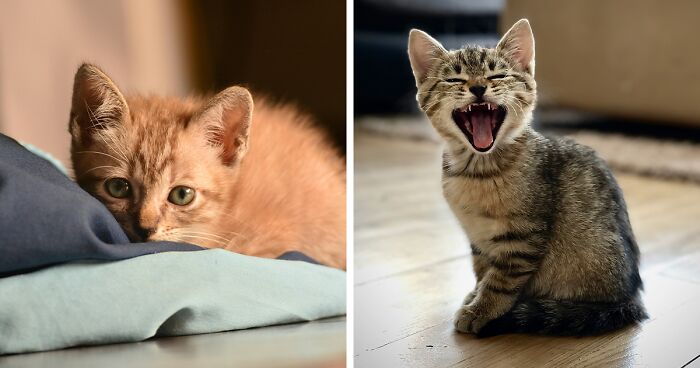
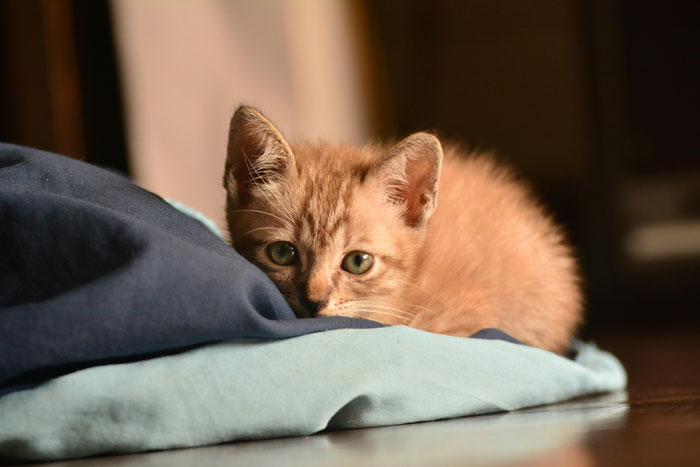 Image credits:
Image credits: 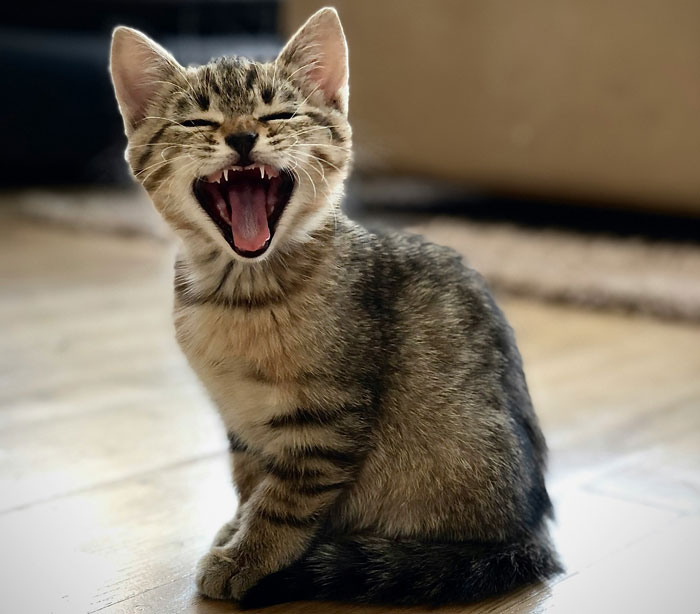 Image credits:
Image credits: 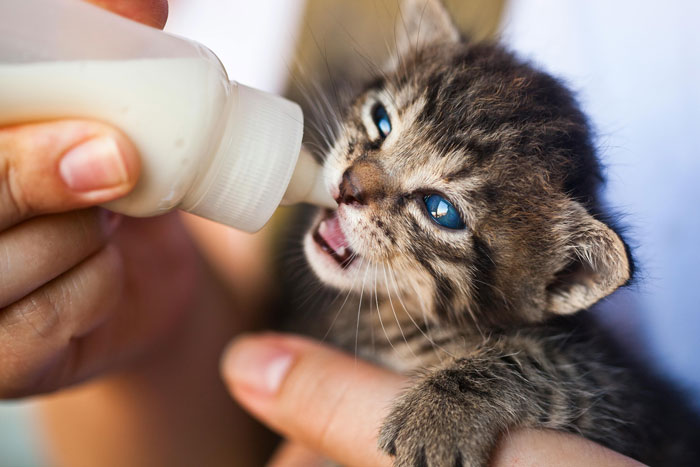 Image credits:
Image credits: 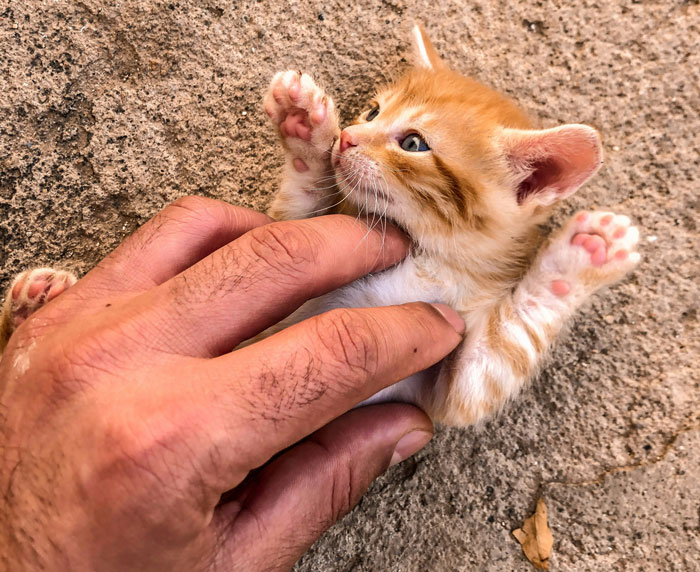 Image credits:
Image credits: 










































2
0